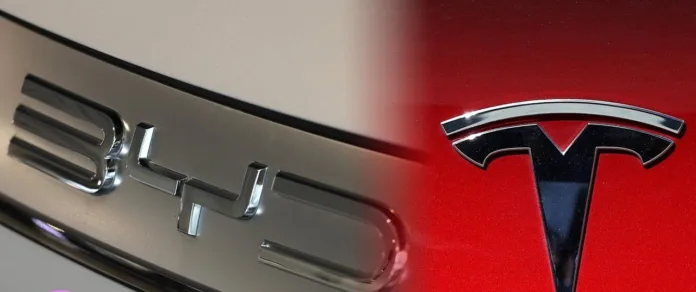Warren Buffett-backed BYD outsells Tesla for the first time, despite intensified price competition impacting margins.
For the first time, Chinese electric vehicle (EV) giant BYD has reported higher quarterly sales than Tesla, marking a significant shift in the global EV market. During the three months leading up to September, BYD achieved revenues of Rmb201bn ($28.2bn), overtaking Tesla’s $25.2bn for the same period. The record-breaking 1.1 million vehicle sales by BYD come amidst an increasingly competitive landscape, fuelled by fierce pricing tactics and boosted by a fresh round of Chinese government subsidies for electric cars.
This revenue surge, up 24 per cent year-on-year, illustrates BYD’s aggressive growth in the sector. However, the company has felt the impact of an ongoing price war in China, which has kept its gross margins under pressure. BYD’s gross margin slipped slightly from 22.1 per cent to 21.9 per cent, highlighting the intense rivalry in China’s EV market, where international and domestic players alike are fighting to maintain their share.
Instead of directly lowering prices, BYD has opted to release new models with longer ranges and more advanced features, priced competitively against earlier versions. This approach has helped the company maintain its dominance but has put downward pressure on net profit per vehicle. Analysts note that this strategy reinforces BYD’s market position, yet with slimmer profit margins.
China’s EV market – the world’s largest – has been particularly punishing in terms of profitability. Not only are local firms like BYD feeling the pinch, but international brands are also grappling with narrowing returns. For instance, Volkswagen recently forecasted that operating profits from its Chinese joint ventures may land at the lower end of its 2024 projection, around €1.6bn instead of €2bn.
One advantage for BYD has been its vertical integration, giving it control over essential components, from batteries to computer chips. This integration has allowed BYD to achieve a gross margin of 21.9 per cent, a notable lead over Tesla’s 17 per cent and far ahead of other Chinese competitors such as Zeekr (14.2 per cent) and Xpeng (6.4 per cent).
Analysts suggest that BYD’s international expansion will be crucial to its long-term growth, especially as Western protectionism rises. Goldman Sachs analysts caution that BYD’s rapid push into overseas markets may face challenges related to local operational complexities, policy changes, and geopolitical risks.
In line with these concerns, the European Union recently imposed an additional 17 per cent tariff on BYD’s battery-powered vehicles, over and above the existing 10 per cent duty. Despite these pressures, BYD is making strides internationally, having opened its first overseas plant in Thailand. Yet, overseas sales accounted for only 7.9 per cent of BYD’s monthly total in September, down from 9.8 per cent the previous year. According to a report by Citi, BYD’s export growth may remain limited in the short term.
Shares in BYD, listed on the Hong Kong Stock Exchange, fell 0.7 per cent ahead of the results, reflecting investor caution amidst intense competition and overseas trade challenges. As the EV market evolves, BYD’s performance will be closely watched as a bellwether for the Chinese automotive sector’s ability to compete globally.
